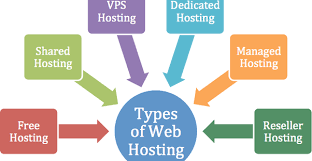Selecting the right hosting plan is a critical decision for any website owner. With a myriad of options available in the market, finding the perfect hosting plan tailored to your specific needs can be overwhelming. In this comprehensive comparison, we will explore various hosting types, features, and factors to consider, helping you make an informed decision that aligns with your website goals.
Understanding Your Hosting Needs:

Before delving into the comparison, it’s essential to assess your website’s requirements. Consider factors such as the type of website you run, expected traffic, technical expertise, and budget constraints. This self-evaluation will serve as a foundation for choosing the most suitable hosting plan.
Types of Hosting Plans:

a. Shared Hosting:
- Ideal for small websites with low to moderate traffic.
- Cost-effective but shares resources with other websites on the same server.
b. Virtual Private Server (VPS) Hosting:
- Provides dedicated resources within a virtual environment.
- Suitable for growing websites with increased traffic.
c. Dedicated Hosting:
- Offers an entire physical server exclusively for your website.
- Best for high-traffic websites with specific performance requirements.
d. Cloud Hosting:
- Utilizes a network of interconnected servers for increased scalability.
- Ideal for websites experiencing variable traffic patterns.
e. Managed WordPress Hosting:
- Tailored for WordPress websites with optimized performance and security.
- Includes automatic updates and expert support.
Performance and Reliability:

Evaluate the hosting provider’s performance and reliability by considering factors like server uptime, page loading speed, and the availability of a content delivery network (CDN). Opt for a hosting plan with robust infrastructure to ensure a seamless user experience for your visitors.
Scalability:

Choose a hosting plan that can scale alongside your website’s growth. Scalability is crucial, especially if you anticipate an increase in traffic or plan to expand your online presence. VPS hosting and cloud hosting are often preferred for their scalability features.
Security Features:

Prioritize the security of your website by opting for a hosting plan with robust security measures. Look for features such as SSL certificates, firewalls, regular backups, and DDoS protection. A secure hosting environment is vital for safeguarding your data and maintaining the trust of your audience.
Customer Support:

24/7 customer support is indispensable for addressing any issues promptly. Prioritize hosting providers with responsive customer support through various channels, such as live chat, email, and phone. A reliable support team can make a significant difference in resolving technical issues swiftly.
Conclusion:
Choosing the perfect hosting plan involves a careful evaluation of your website’s needs, considering factors like performance, scalability, security, and customer support. By understanding the various hosting types and their features, you can make an informed decision that aligns with your goals, ensuring a reliable and efficient hosting environment for your website.


